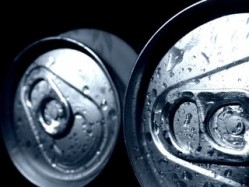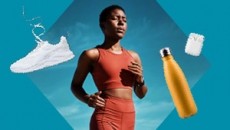Diet soft drinks risk ‘rosy self-deception’ on obesity, Euromonitor suggests

While it accepted that ‘better for you’ reduced sugar soft drinks could be considered a godsend, the research organisation said in a recent blog post that a “growing body of research” suggested such products “may not be conducive to combating obesity at all”.
Euromonitor rehearsed the argument that an overweight person of stable weight could achieve “slow but steady weight loss”, by swapping 2 cans of regular soft drink for an artificially sweetened, calorie-free version.
“[B]y implementing this solution, the individual can expect to drop a pound around every 2 weeks, as long as all other parameters (diet, exercise) remain unchanged," said Euromonitor.
“Vice Versa, if a person adds extra calories to his or her diet through the consumption of soft drinks,, weight gain is the likely result”.
Global victory march
Driven by this rationale, Euromonitor said that reduced calorie soft drinks were now on a “global victory march, further propelled by ever-improving concoctions of artificial sweeteners, giving rise to low-calorie products barely distinguishable from their high-calorie counterparts”.
The research organisation cited Coca-Cola Zero’s 2006 launch, which it said captured a young male demographic that had previously shunned low-calorie drinks because of a perceived “girly” image.
But despite the fact that diet drinks were regarded as a “palatable and convenient substitute for high-calorie soft drinks”, Euromonitor said evidence was emerging that suggested that the positive relation between low-calorie drinks and weight management was inconclusive.
“Hypotheses usually centre around the assumption that artificial sweeteners prime the body into accepting calories, and that the failure of these being delivered triggers intense cravings for food and sweet drinks, causing people to overeat,” it said.
Yet any correlation between reduced-sugar soft drink consumption and obesity be due to people trying to compensate for excessive food intake, Euromonitor added.
“Jokes are often made about overweight individuals, who are observed ordering a high calorie, ‘super-sized’ fast food meal accompanied by a diet drink.
“This scenario, where diet drinks serve as a damage limitation measure, rather than part of a conscious effort to lose weight, is likely to be a common one, warranting further investigation.”
Super-size problem?
Tam Fry from the National Obesity Forum (NOF), which represents UK medical practitioners, told BeverageDaily.com that his organisation supported the use of sweeteners in beverages, and said they should not cause people to overeat.
“I don’t necessarily agree [with the over-eating argument]. Because adults should have enough nouse to know the reason they’re taking these sweeteners is part of a weight-loss programme, and they shouldn’t overeat and must be sensible,” he said.
“If people are going to eat burgers they’re lost in the first place. The case for sweetened beverages centres on use by people who know that they’re doing to keep themselves in shape.
Fry added that research into whether reduced-calorie drinks encouraged over-eating was also ambivalent: "Some people say it does, some people say it doesn’t. It depends who’s paying for the person who wrote the research. There’s a huge lobby that says ‘we want people to eat sugar’."
He added that the debate should not apply to children, because it was “inappropriate that children have artificial sweeteners, they need sugar”.











